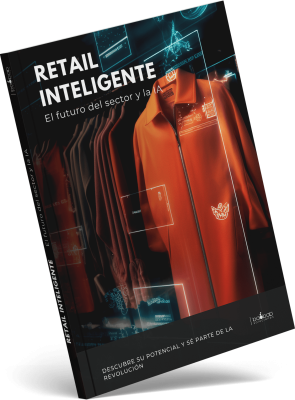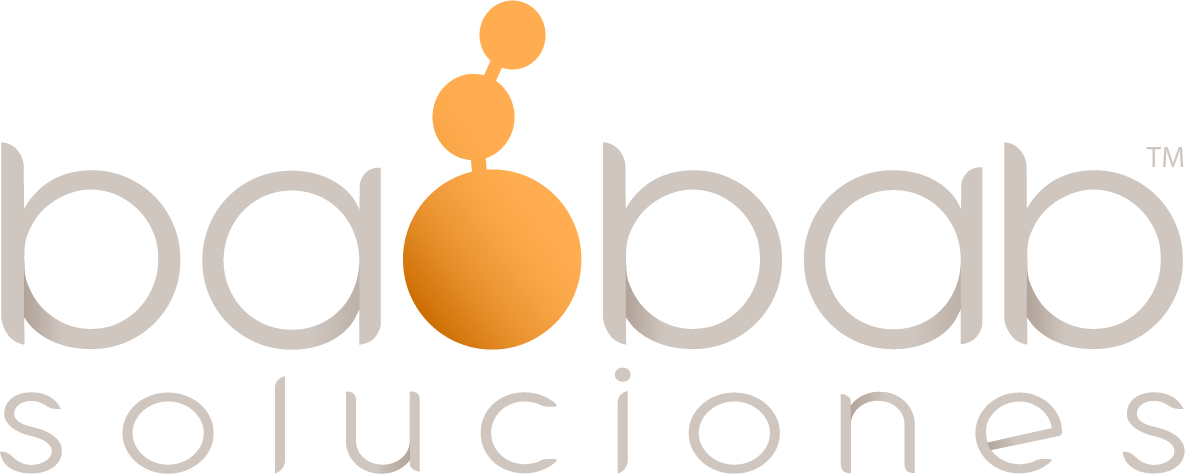One of the key sectors at the center of environmental discussions is the consumer goods industry, largely due to the waste it produces. According to data from the European Parliament, over 60 million tons of food-related waste and more than 80 million tons of packaging waste—made of cardboard and plastic—are generated annually within the European Union.
This has created a pressing need to reduce the environmental impact caused by the industry, and companies within the sector are well aware of the challenge they face. The European Union has developed and is actively implementing the so-called Green Deal, aimed at addressing the climate crisis. This Green Deal outlines specific guidelines for the industry and introduces penalties for companies that fail to comply with these new regulations

What role does technology play in this context? Artificial Intelligence becomes a key player in optimizing waste management and material recycling. Processes that were once considered highly costly and complex are being transformed dramatically through AI-driven technologies
These systems provide key benefits in terms of operational efficiency, cost reduction, regulatory compliance, and sustainability goals.
Here are some of the most significant advantages:
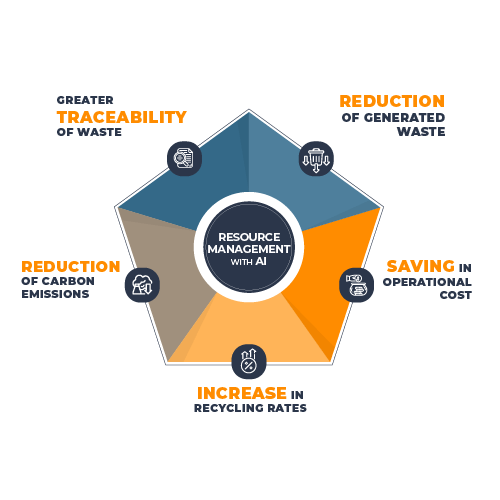
Additionally, reducing workplace accidents and improving brand reputation are other key advantages of applying AI in waste management.
These technologies enable the automation and optimization of processes such as sorting, forecasting, and waste collection, paving the way for more efficient and sustainable management.
So, what are the specific applications of these technologies?
- Automated waste sorting: Enhances accuracy and boosts recovery of valuable materials.
- Detection of hazardous materials: Ensures compliance with regulations while mitigating health and environmental risks.
- Waste generation prediction: Anticipates the quantity of products needed, helping to avoid overproduction and unnecessary waste.
- Inventory management: Forecasting future sales to optimize inventory control.
- Route optimization for waste collection: Streamlines transportation routes for waste management, leading to cost savings.
- Recommendations for reuse and recycling: AI systems can suggest the best ways to reuse certain materials effectively.
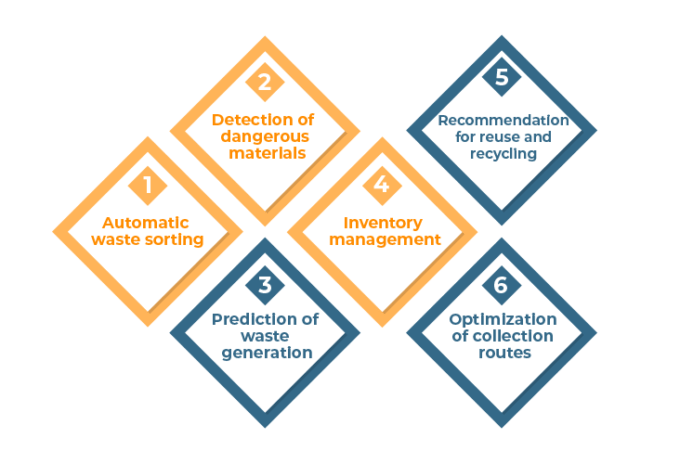
Use Cases
There are companies in the industry that have successfully implemented AI systems in this field, gaining a competitive edge over their rivals.
Recycling and waste management are significant challenges and opportunities for gaining a competitive advantage in the pursuit of more sustainable and efficient operations.
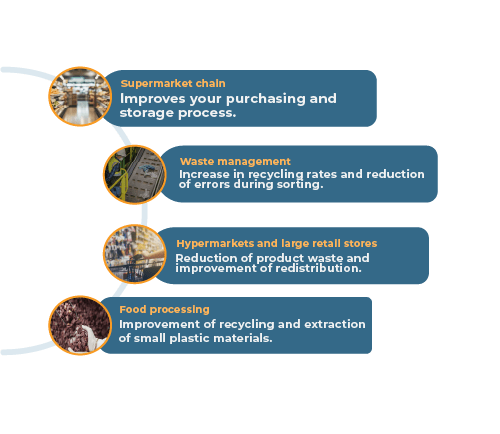
By applying these technologies, operational costs are reduced, environmental impact is improved, and compliance with current regulations is ensured.
If you’re interested in learning more about how to apply AI in the retail sector, you can download our free ebook:
